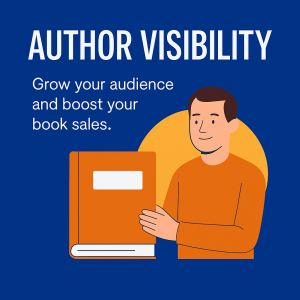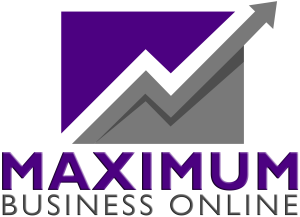Growing your author platform takes more than just posting — it takes a clear strategy and authentic connection.
Visibility isn’t about being everywhere. It’s about showing up with purpose, where your ideal readers already are.
Why Most Self Published Authors Quit
Where Most Self-Published Authors Quit — and How to Avoid [...]

What’s The Point?
So you’ve published your book — but what if no one knows it exists?
You’ve got a great story, a strong message, and maybe even a beautiful website… but your ideal readers aren’t finding you. Or maybe they are — but not in the numbers you hoped for.
That’s where Author Visibility Strategy comes in.
It’s not about chasing trends. It’s about putting your book in front of the right audience consistently — through intentional visibility, not guesswork.
📘 Facebook Lead Generation for Authors
With over 40 million Facebook users in the U.S. alone, this platform remains one of the most powerful ways to get your book or lead magnet in front of the right readers — all without needing a massive following.
Facebook Ads allows indie authors to:
- Target specific reader interests (romance, mystery, self-help, fantasy)
- Promote your lead magnet, book launch, or author brand
- Start advertising for as little as $1/day
- Re-target website visitors with follow-up ads
The real value? Facebook helps you stay top-of-mind. Your ads work in the background, creating desire and familiarity — long before someone clicks “buy.”
🐦 Twitter (X) Lead Generation for Authors
Twitter may be smaller than Facebook, but it’s fast-paced and perfect for authors with strong opinions, shareable content, or a growing niche.
With tools like Lead Generation Cards, you can:
- Collect email addresses directly inside tweets
- Engage with writing communities, genre hashtags, and trending conversations
- Drive traffic to your landing pages or author website
Twitter is less about polished ads and more about personality, thought leadership, and consistency. If you’re building visibility and want to start conversations, this is your place to shine.
💡 Social Media vs. Search Ads — What Should Authors Use?
Here’s the difference between paid search and social media promotion:
| Platform Type | Audience Behavior |
|---|---|
| Search Engines (Google, Bing) | People are actively searching for book reviews, keywords, or answers — they’re closer to buying. |
| Social Media (Facebook, Instagram, Twitter) | People may not be looking for a book — but you can
|
